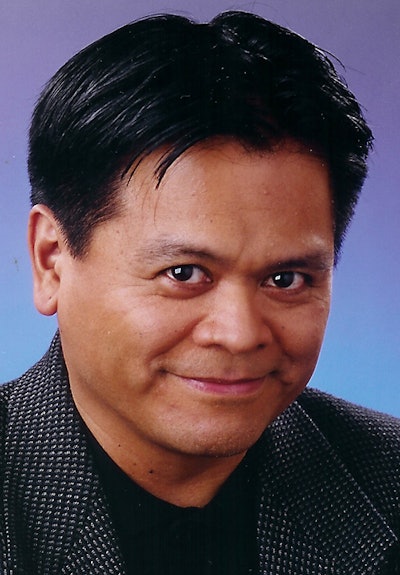When I was a fry cook’s son, the first in my family to go to an Ivy league college, I didn’t just get a full-ride scholarship.
To me it was like a ticket to outer space. Though it’s hard to say who was the alien. The kids I met from the expensive prep schools. Or me.
That was my lens watching Richard Branson’s PR stunt this past weekend.
For the record there was one person of color on board Branson’s flight on Sunday. One out of six? The numbers still don’t sound terribly diverse. So thank God for Sirisha Bandla.
Bandla, 34, immigrated with her family from India as a young girl when her father, an academic, came to America. Bandla grew up with a love of science and went on to Purdue to study aeronautical engineering, then got an MBA. She’s now the vice president of Virgin’s government affairs and research operations.
On this latest voyage, Bandla was actually doing some research on microgravity, according to the New York Times. She was conducting an experiment form the University of Florida that looked at how plants react to changes in gravity.
On Sunday, after getting her wings, and popping champagne like a Super Bowl champ, Bandla was taken from behind by Branson, who went underneath Bandla’s legs to lift her up on his shoulders and carry her off the stage. (Hello, Virgin H.R. department? )
 Emil Guillermo
Emil GuillermoPerhaps it was just the post-flight exuberance.
Branson’s affirmative action
When Branson went to the edge of outer space last Sunday he did just enough to qualify as a civilian astronaut. More than 50 miles into the sky, the Virgin rocket plane went about the same distance as a car would have from the southern most part of Washington, DC to the northern most part of Baltimore. Just enough for some G-force fun, a bit of weightlessness, and a glimpse of the earth that was to die for.
But will that be worth $250,000 a ticket to a consumer? That’s like more than triple what one year at NYU costs.
For all the talk about the billionaire space race being the “democratization” of space, I’d correct that adjective to describe the venture as space and its “commercialization.”
This isn’t just something you put on the Discover card. Not enough space (pun intended).
Nor would you take out a mortgage on your home to be a 21st Century space tourist. Would you?
Let’s face it. This is an elitist’s bucket list fantasy. The rest of us would need a scholarship. Or at least some form of affirmative action.
And Branson has the answer. You can enter his lottery/charity to win your ticket to ride. “Space for Humanity” gives you a chance to win two seats aboard a Virgin Galactic flight.
“Just imagine a world where people of all ages, all backgrounds, from anywhere, of any gender, of any ethnicity, have equal access to space, and they will in turn, I think, inspire us back here on Earth,” Branson said, brimming with a sense that diversity has a place in space.
It’s the good guy thing to say in a vanity moment to the extreme.
Much had been said about the so-called “overview effect,” the humbling shift in perspective when one gets a galactic glimpse of the earth.
But Branson is already considered a better than average “good guy.” How much better will he be post-flight? If space is transformative, shouldn’t we be sending the climate deniers? The vaccine deniers? The people who still think Trump was robbed of victory last November and will be re-installed as president at any moment? The people who want to restrict voting rights that will impact all people of color?
You know the type. Essentially, it’s the people who threaten our democracy. They’re the Americans in need of a perspective change. People for whom a bungee jump from a tall canyon is not enough. Send them to the edge of the world for that “we are all one team” moment, with the hope they’ll return as kinder, more empathetic humans for the good of the country, if not the world.
You know we need it when 4,100 attended CPAC (Conservative Political Action Conference) in Dallas this weekend, where Trump won a straw poll among attendees as their presidential choice for 2024.
Does Branson sell one-way tickets?
Is space the best way to use the money?
For the rest of us, if space is your thing, great. I know it’s hard to keep watching Star Trek re-runs and spin-offs.
But even the pop astrophysicist Neil deGrasse Tyson seemed under-impressed by it all when he noted Branson wasn’t the first to go suborbital and didn’t really “go” anywhere.
Tyson put things into perspective by pointing out if you held a standard desk globe in your hand, the Branson ship went about a few centimeters from the surface.
People always tend to look to the heavens for inspiration, but truthfully, there’s more to be done down here with the money spent on a billionaire’s thrill ride.
Mass inequality has created too much space between the rich and poor. That’s the space worth exploring and filling in.
If Branson really wants to make a mass impact, here’s how to make a difference. Endow no-strings scholarships to people for whom a quality education would be out of reach, and the idea of going to a great college seems like the University of Pluto.
Far more than a mere flight to the edge of space, Branson could put wealth and people into orbit in a much more effective and practical way.
Think of it as a kind of “affirmative action” beyond a billionaire’s vanity that could be a real dream enabler, democratizing what truly needs to be democratized—higher ed.
Emil Guillermo is a journalist and commentator. He writes for the Asian American Legal Defense and Education Fund. You can follow him on Twitter @emilamok



















